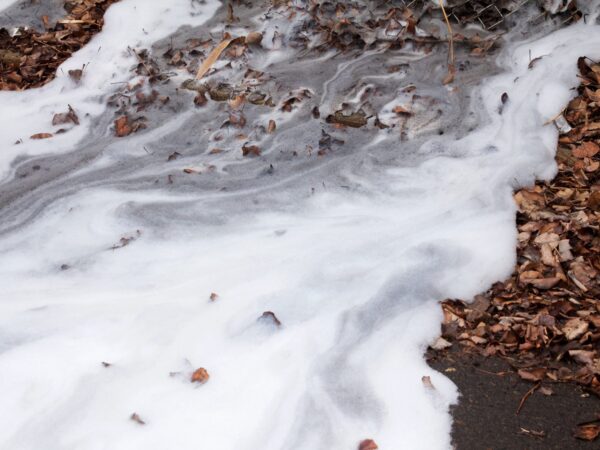
TRAVERSE CITY, Mich. (AP) — A Michigan oversight panel Thursday endorsed drinking water standards designed to limit exposure to a group of household and industrial chemicals linked to a variety of health problems.
The proposed rules would apply to seven compounds in a category known as perfluoroalkyl and polyfluoroalkyl substances, or PFAS. They have been used for decades in products ranging from nonstick cookware to stain-resistant clothing and food containers, as well as foam used to extinguish jet-fuel fires.
They’re known as “forever chemicals” because they persist indefinitely in the environment without breaking down. Members of Congress announced Thursday the Air Force would spend $13.5 million cleaning up PFAS water pollution near the former Wurtsmith Air Force Base in Oscoda, Michigan.
Thousands of PFAS compounds have been developed. The Michigan Department of Environment, Great Lakes and Energy crafted drinking water standards for just seven because they’re the only ones for which there is enough scientific data to justify regulation, spokesman Scott Dean said.
Their acceptance by the Environmental Rules Review Committee was a key step. The state legislature established the panel in 2018 at the urging of Republicans who described it as a check on excessively burdensome regulation.
Among its members are representatives of business and industry sectors including oil and gas, agriculture and manufacturing. At their urging, the panel delayed action on the PFAS rules last fall.
But it approved the proposals Thursday on a 8-0 vote, with two members abstaining.
The decision “shows there is broad support for rules that protect Michiganders from contaminants in their drinking water,” said Liesl Clark, director of EGLE.
The rules still need approval of the legislature’s Joint Committee on Administrative Rules before taking effect.
They would cover about 2,700 drinking water systems, requiring them to conduct periodic testing and inform the public of results.
EGLE forwarded its proposals to the oversight panel last October. The panel considered them in two meetings and took public feedback.
While the overwhelming majority of written comments were supportive, some raised concern about the costs of meeting the standards or said the rules were put together too quickly.
Smaller drinking water suppliers “don’t have the ability to pass that cost along on any non-painful way to ratepayers,” Laura Campbell, agricultural ecology manager for the Michigan Farm Bureau, said during Thursday’s meeting in Lansing.
John Dulmes, executive director of the Michigan Chemistry Council, said the department hadn’t provided enough scientific justification for some of the provisions.
Panel member Grant Trigger, an engineer who manages cleanups of former General Motors properties, questioned whether the standards, although designed for drinking water, might affect users of PFAS-tainted compost or sewage byproducts known as biosolids.
Department officials said they would move slowly on dealing with contaminated soils.
The oversight committee agreed to send the legislative rules committee a memo outlining criticisms that had been submitted. But supporters said there was no need for further delay.
“None of us sitting at this table are toxicologists,” said Eric Pessell, a member from Delton representing public health professionals. He said the department gave due regard to objections and ran them past a science advisory group but found no reason to adjust the proposed limits.
Environmental groups said the limits were essential to safeguard Michigan’s water from the chemicals, which studies have linked to testicular cancer, damage to organs including the liver and kidneys, and reproductive system harm.
“While we continue to believe that a panel stacked with industry special interests shouldn’t have an oversight role over rules designed to protect our environment and public health, we are glad that the committee took the right step and approved these critical drinking water protections,” said Charlotte Jameson, a program director for the Michigan Environmental Council.
Watch Great Lakes Now’s documentary on PFAS and its impact on communities:
API key not valid. Please pass a valid API key.Featured image: DEQ Contractor uses Yuma tablet to document potential PFAS contamination. (Photo by DEQ via wikimedia cc 2.0)




